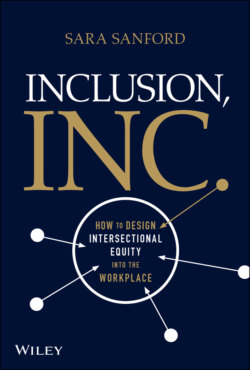Читать книгу Inclusion, Inc. - Sara Sanford - Страница 37
The Meritocracy Paradox
ОглавлениеPay-for-performance schemes are supposed to foster workplace meritocracies. To study how they actually play out in organizations, MIT's Sloan School of Management observed a 9,000-employee service sector company that had implemented a “merit-driven compensation system.” This employer emphatically communicated to all their employees that they were implementing this program to ensure workers were rewarded equitably, based on their performance.
The study revealed counter-meritocratic outcomes: Women, ethnic minorities, and employees born outside the US received smaller increases in compensation for the same performance scores as those made by white men. These findings controlled for whether or not employees held similar jobs, worked in the same units, and had the same supervisors. Women, minorities, and those not born in the US had to “work harder and obtain higher performance scores than white men to receive similar salary increases.”
Emilio J. Castilla, one of the study's lead researchers, wondered if telling employees that they worked in a company that rewards merit impacted employees' behaviors. In partnership with Indiana University Sociology Professor Stephen Bernard, he conducted a series of lab experiments that all led to the same outcome: When companies emphasized “meritocratic values” to employees as part of their core identity, managers were more likely to award larger “performance-based” bonuses to male employees than to equally performing female employees.
Much in the same way that attending a training could make employees feel they had gained moral capital, being told they worked for a meritocracy made them more likely to believe they were making merit-based decisions. They felt their decisions were impartial and correct, by proxy. Taking fairness for granted, though, actually allowed bias to dilute merit, rather than enhance it. Castilla and Bernard named this phenomenon the “Paradox of Meritocracy.”
When businesses put processes in place, however, to ensure that they don't overlook valuable individuals, the benefits compound in a surprising way. Underestimated employees don't just add their own talents to the workplace—they amplify the talents of their co-workers. We can look to the 2002 Oakland Athletics for an example of how this plays out.
